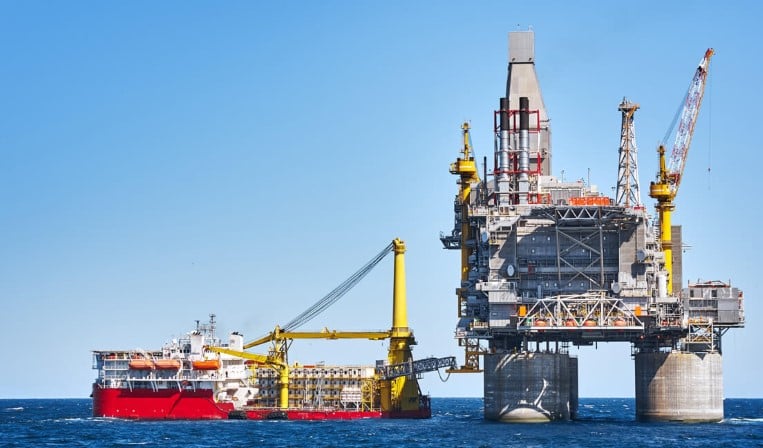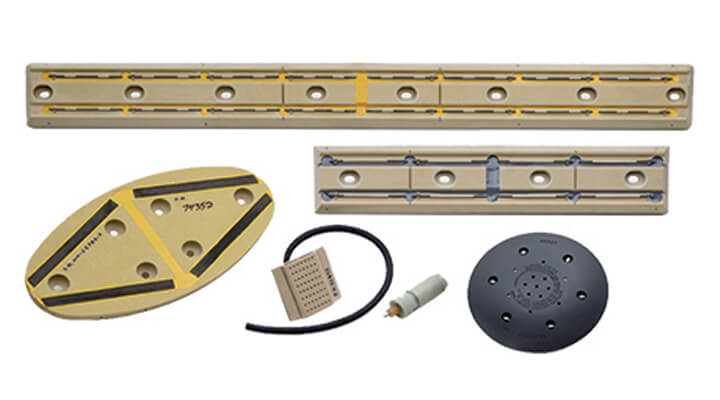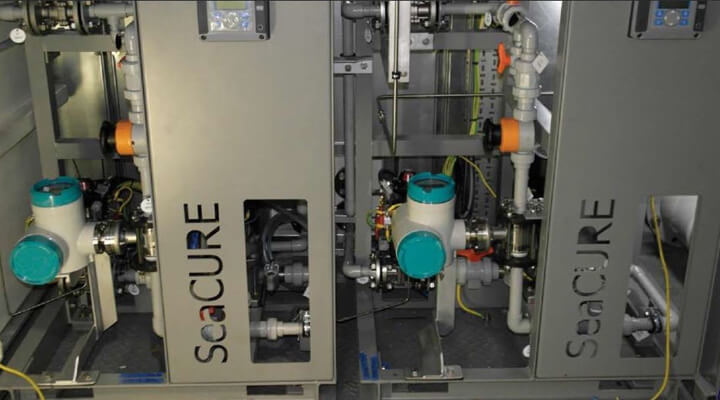In seawater-based processes, the cost of fouling can be substantial. Macro-fouling from mussels, clams, oysters, sea anemones and barnacles, combined with micro fouling from bacteria, slime and algae can greatly restrict the flow of cooling water to heat exchanger surfaces, accelerate localized corrosion by restricting oxygen diffusion and cause destructive turbulence at inlets - all which may affect performance and shorten the life of affected equipment.
Evoqua offers solutions for all coastal facilities and offshore vessels and platforms, with over forty years of experience in delivering proven solutions for the oil and gas, marine, refining and power industries.
- Offshore structures – Fixed platforms, FPSO, FLNG, gravity-based structures, semi-submersible, drill ship, wind farms
- Land-based – Power and petrochemical industries
- Marine – Ships, vessels, tankers, naval fleets, container and cruise ships, cargo and gas carriers

Chlorination is a well-accepted biocide for treating biologically fouled seawater; however, the manual use and bulk storage of chlorine is generally an unacceptable safety hazard on land or particularly offshore. Increasing regulatory concerns have limited the use of alternative methods, such as copper, due to its release in to the aqueous environment.
The Chloropac® electrolyzer system uses an active anode coating and direct electrical current to prevent marine growth and equipment failure. The Chloropac system produces a dilute, safe solution of sodium hypochlorite in situ for direct injection into any seawater circuit for prevention of marine growth. The Chloropac electrolyzer complies with strict regulations and is available in a choice of basic cell designs.


